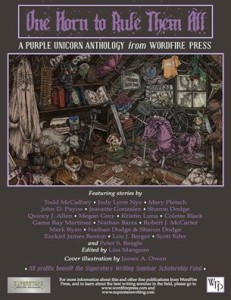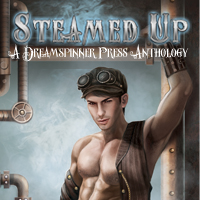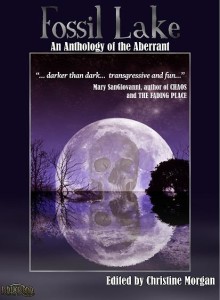I’m an introvert. Growing up, I liked to believe that I could accomplish my goals via my own efforts, and I didn’t need anyone else’s help (for fear it would only come with strings attached). So when I first started hearing about “networking,” I cringed. I was sure that professional writers were tired of being pestered by newbies who wanted favors, and I feared that my fellow authors were “competition,” the people I would have to beat if I wanted to be published.
My experiences with networking haven’t been like that at all.
Firstly, it takes more than one writer to fill an anthology. And more than one writer to contribute to a magazine. And more than one writer to fill a publishing company’s needs. Writing is not a race that will only be won by the first person past the finish line. In fact, when you’re a writer and you need a hand, the people you’ll turn to – the people who can offer you contacts and introductions and support and advice – are your fellow writers.
 I’m here writing on this blog because I went to Superstars Writing Seminars in 2010. I went to Superstars because another friend of mine, a published author, recommended it to me. I’ve published short stories in “Game of Horns: A Red Unicorn Anthology” and “One Horn to Rule Them All: A Purple Unicorn Anthology,” and I still can’t believe I’m seeing my name on the list of contributors along with Peter S. Beagle, author of “The Last Unicorn,” a movie I’ve loved since childhood.
I’m here writing on this blog because I went to Superstars Writing Seminars in 2010. I went to Superstars because another friend of mine, a published author, recommended it to me. I’ve published short stories in “Game of Horns: A Red Unicorn Anthology” and “One Horn to Rule Them All: A Purple Unicorn Anthology,” and I still can’t believe I’m seeing my name on the list of contributors along with Peter S. Beagle, author of “The Last Unicorn,” a movie I’ve loved since childhood.
None of that would’ve happened if I hadn’t known the right people. And I would never have known them if I hadn’t talked to my fellow writers.
“Knowing the right people” can be frustrating. It takes more to make friends and contacts than simply the desire to have them. You need to go out–preferably not with the mindset of “catching a contact who can do things for me.”
Put yourself out there with the intent of getting to know some people with the same interests as you. You might not click with everyone, and that’s okay. Everyone has some people who are close friends, some people who are casual acquaintances, some people they have little in common with — and that’s okay. Keep going. Keep meeting new people. Keep reaching out.
Reaching out might not always involve face to face socializing. The person who recommended Superstars to me was someone I’d first started chatting with on an online message board. Face-to-face is often easier, but if health, money, or other factors make it difficult, online contacts can get you started.
Look for writers’ groups in your area. If there aren’t any that meet your needs, consider starting one. Go to conventions, if you can afford to do so–and affording gets a lot easier when you have friends who will let you stay and/or travel with them (thanks Marie and Kerri!)
If you’ve got a friend who’s a big-name author, remember first and foremost this person is your friend. Not your “awesome inside source,” not a name-drop to impress people, not Santa Claus (write them a wish list and wait for them to fulfill it). Treat your contacts as people first.
I have an exciting project that will be the focus of my writing in 2016. I’m not yet free to talk about it (contractual obligations) but once again, it’s a project that has come to me because of who I know. Being able to write the kind of stories I tell is important too–don’t get me wrong! Two of my previous short stories in particular were very helpful in proving that I’d be up to this project. But in the end, it was the recommendation of a fellow writer that first brought me to the attention of the project lead.
Stay tuned – I’ve got big news coming in 2016 ! Have a great holiday season and a prosperous New Year.


